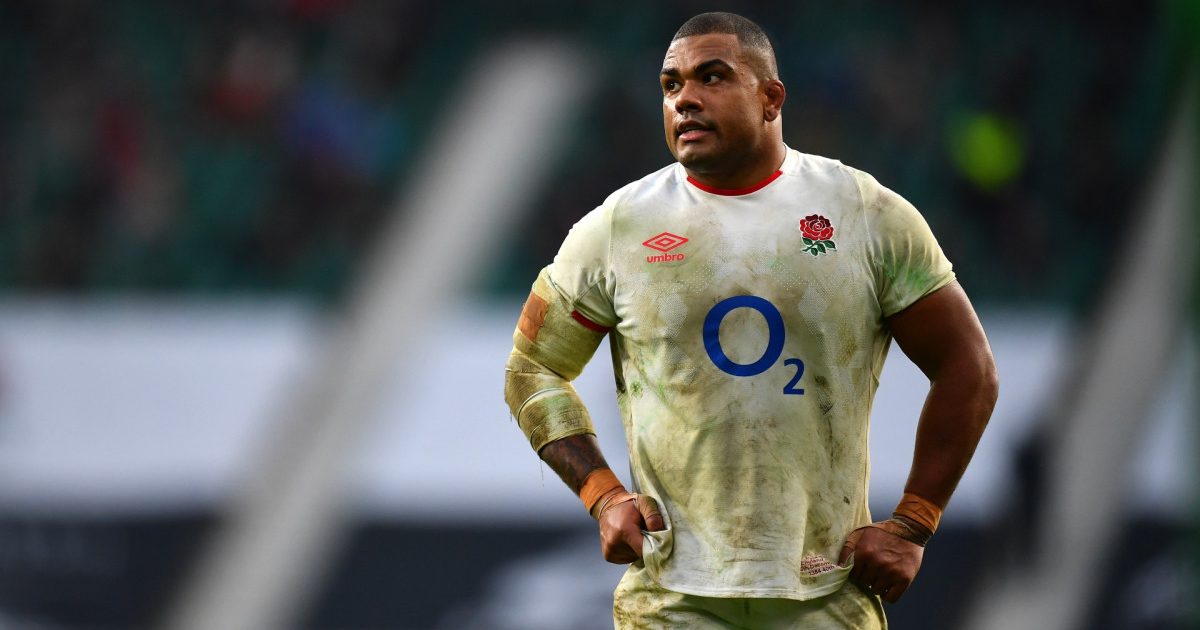Andy Goode: 'You would have to question the morality of the decision if he was allowed to be named in the England squad'

Eddie Jones having to operate with just a 28-man England squad for the Six Nations throws up a number of issues for him, most notably what to do about Kyle Sinckler. The Bristol prop has been given a two-week suspension for “failing to respect the authority of the match official” after shouting “are you f***ing serious” at referee Karl Dickson in their Gallagher Premiership game against Exeter last weekend.
Officially, he is due to miss the Bears’ next two fixtures against Bath and Sale and be free to play again on February 9 but surely if he is named in the England squad next Friday, seven days before Bristol’s next game against Bath, that will change.
The regulations state that if any of the above games are cancelled or rearranged then the player’s free to play date will be amended to ensure the sanction remains meaningful.
They might not be cancelled but if Sinckler is included in the England squad, he has to miss the opening two games of the Six Nations as he wouldn’t have been available for the Bath game and that part of the sanction wouldn’t remain “meaningful”.
You would have to question the morality of the decision if he was allowed to be named in the England squad and only miss the opening game of the Six Nations against Scotland. World Rugby could obviously intervene as well, so Jones will be left with a conundrum.
England to pick from 28-man squads for Six Nations under new protocolhttps://t.co/CBU8fCB9SN pic.twitter.com/C9102eEw49
— RugbyPass (@RugbyPass) January 15, 2021
If he chooses to name Sinckler in his squad, then he will have to include three tightheads. If he leaves him out, then he will miss the entire competition unless there is an injury at tighthead. The RFU, Premiership Rugby and the RPA have all agreed to a smaller squad being named to reduce movement in and out of camp because of the challenges presented by Covid-19 and we understand there won’t be the usual chopping and changing.
Even without the Sinckler situation, sticking to 28 players throughout presents problems for Jones when you consider he had a 36-man squad to work with for last year’s Six Nations and the World Cup allows 31 players to be included.
There is always the debate at World Cup time around which positions a coach leaves himself short in and that will be the case even more with three fewer players at his disposal. If it wasn’t for the Sinckler situation, I’d expect Jones to name six front rowers, four locks, six back rowers, three half-backs, four centres (including Owen Farrell) and five players in the back three.
Of course, a smaller squad also means there is virtually no chance that we will see the likes of Joe Simmonds MBE, Marcus Smith and co given opportunities to impress in an England environment. They could have been given a run in the autumn, though, and weren’t so it is, in reality, going to be a similar squad and a similar situation for Jones in the Six Nations as it was in the Autumn Nations Cup.
He used just 29 players in that tournament and Joe Marler only played in one game for 37 minutes, so he shouldn’t have too much of a problem. But one area where the smaller squad may mean a slightly different approach is in training, which is notoriously tough with England.
Jones likes to do 15 on 15 quite a lot in a controlled, contact environment and he isn’t going to have the numbers. He will have to adapt in terms of the intensity of training and maybe backload a training week a bit more rather than frontload it because he is normally used to operating with a large group and then releasing some back to clubs midweek.
As much as Jones would want as many players at his disposal as possible, it won’t affect England’s chances and he will fully expect to retain the title. But Sinckler’s selection does pose a major moral and practical headache for him before the tournament has even begun.
'Billy is a little different, always has been'
– Saracens explain why Vunipola isn't having a 9??-week break in between games, unlike their other England stars.https://t.co/xDmhq5Iabf pic.twitter.com/IikzYsktiy
— RugbyPass (@RugbyPass) January 15, 2021































